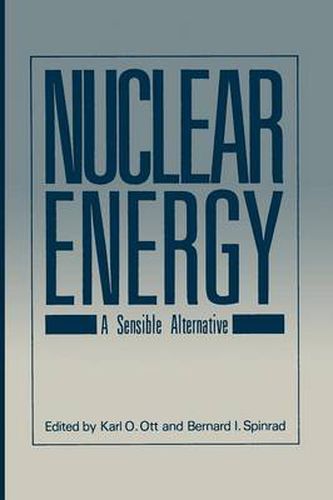Readings Newsletter
Become a Readings Member to make your shopping experience even easier.
Sign in or sign up for free!
You’re not far away from qualifying for FREE standard shipping within Australia
You’ve qualified for FREE standard shipping within Australia
The cart is loading…






This title is printed to order. This book may have been self-published. If so, we cannot guarantee the quality of the content. In the main most books will have gone through the editing process however some may not. We therefore suggest that you be aware of this before ordering this book. If in doubt check either the author or publisher’s details as we are unable to accept any returns unless they are faulty. Please contact us if you have any questions.
E. L. Zebroski During the 1970s, there was rapid growth of a philosophy that assumes that deindustrialization will result in an Elysian postindustrial society. This view is generally antitechnology; commonly in opposition to large-scale energy sources; and often supportive of high-cost, speculative, or at most, small-scale energy sources. The social and economic costs of policies which would lead to dein dustrialization are ignored or considered to be irrelevant. The development of civilian nuclear energy as a by-product of wartime developments also brings with it an association with the fear of nuclear weapons and with the repugnance for war in general. Many of these views and associations mingle to provide significant political constituencies. These have had consid erable impact on party platforms and elections. Also, another important aspect is the conservation viewpoint. This view–correctly–concerns the fact that in definite increase in per capita energy consumption, coupled with increasing U.S. and world populations, must at some point be restrained by limits on resources as well as by limits arising from environmental effects. All of these concerns have been subject to voluminous analysis, publications, and public discussion. They underlie one of the dominant social movements of the 1970s and 1980s. Indefinite exponential growth of energy production is neither possible nor de sirable.
$9.00 standard shipping within Australia
FREE standard shipping within Australia for orders over $100.00
Express & International shipping calculated at checkout
This title is printed to order. This book may have been self-published. If so, we cannot guarantee the quality of the content. In the main most books will have gone through the editing process however some may not. We therefore suggest that you be aware of this before ordering this book. If in doubt check either the author or publisher’s details as we are unable to accept any returns unless they are faulty. Please contact us if you have any questions.
E. L. Zebroski During the 1970s, there was rapid growth of a philosophy that assumes that deindustrialization will result in an Elysian postindustrial society. This view is generally antitechnology; commonly in opposition to large-scale energy sources; and often supportive of high-cost, speculative, or at most, small-scale energy sources. The social and economic costs of policies which would lead to dein dustrialization are ignored or considered to be irrelevant. The development of civilian nuclear energy as a by-product of wartime developments also brings with it an association with the fear of nuclear weapons and with the repugnance for war in general. Many of these views and associations mingle to provide significant political constituencies. These have had consid erable impact on party platforms and elections. Also, another important aspect is the conservation viewpoint. This view–correctly–concerns the fact that in definite increase in per capita energy consumption, coupled with increasing U.S. and world populations, must at some point be restrained by limits on resources as well as by limits arising from environmental effects. All of these concerns have been subject to voluminous analysis, publications, and public discussion. They underlie one of the dominant social movements of the 1970s and 1980s. Indefinite exponential growth of energy production is neither possible nor de sirable.